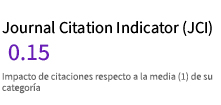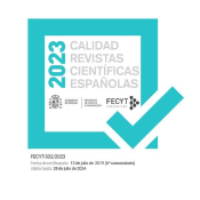About the Journal
Boletín de Arte, founded in 1980, is the academic journal edited by the Department of History of Art at the University of Málaga. Boletín de Arte fosters research and academic discussion based upon all periods of the history of art, as well as art theory, aesthetics and visual culture. This scientific journal is published annually in both paper and digital formats, only accepting original proposals which have not been previously edited or published in any other journal, book, conference proceedings, seminar, etc. The journal follows a peer-reviewed policy in the selection of articles. This double-blind peer review process contains the standard criteria for serial scientific publishing. Boletín de Arte welcomes submissions in Spanish, English, French and Italian. Paper titles, abstracts and keywords will be also published in English.
The journal publishes scholarly articles but it also devotes different sections to book reviews, art criticism and Varia/Miscellanea.
Boletín de Arte publishes leading research in art history as practiced by art historians, artists, architects, aesthetic specialists, researchers and those professionals related to history, and art theory and practice.
Since 2013, a new journal era has begun with renewed editor-in-chief and editorial board, as well as with a scientific committee formed by world-leading specialists in the field of art history; more than 50% of this committee are researchers working in European, United States and Latin American universities.
PAPER ACCEPTANCE
The Editorial Board has established a limited number of originals in each section (See: Guidelines for authors).
Texts by the same author will not be published in the "Articles" and "Varia" sections until two issues have passed since their last publication in the mazine.
The policy of the sections is as follows: in the "Contrasts" section, articles are published at the invitation of the Editorial Board.
The "Varia", "Bibliographical Comments" and "Reviews" sections are subject to open submissions and publication prior decision of the Editorial Board with the advice of the Editorial Committee (none of them, therefore, are subject to peer review).
The "Articles" section accepts open submissions and is the only one that is submitted to peer review, following the editorial process described below.
The period for receiving articles will be open between November 30/December 30 (of the year of publication of the last issue) and February 28/March 31 of the year in which the new issue of the journal will be published, rejecting the articles arriving outside of that date range. These will be reported in the CFP.
BLIND PEER REVIEW
If the article follows the style and content guides as indicated in Author guidelines for the submission of papers, the editorial board will send it over to two anonymous expert reviewers out of the Editorial Committee, according to blind review procedures. The article evaluation will be closely related to the topic relevance, its contribution to the general knowledge of the specific field, innovations, correction of established relations, critical theory developed, bibliographical sources, style, etc.; the evaluation will also include possible recommendation for the authors. According to reviewers’ comments, the journal secretary will communicate the revision results by sending an email to the address given by the authors in their paper proposal. The secretary will bein contact with the corresponding author by informing him/her about the reviewers’ decision (accepted as it is; accepted with minor changes; accepted with major changes; rejected), together will some observations and reviewers’ comments. If the manuscript is accepted with some modifications, the authors should resend a new version of their paper, answering the external reviewers’ suggestions and demands. Articles requiring major changes might be sent back to the Editorial Committee and/or the Scientific Committee in order to verify the validity of the author’s changes.
Once the required changes are evaluated, the Scientific Committee will proceed to thepublication or rejection of the article. The final decision will be made by EditorialCommittee members, and the author will be accordingly notified by the editor-in-chiefor by the editor assistants
OPEN ACCESS STATEMENT
This is an open access journal which means that all content is freely available without charge to the user or his/her institution. Users are allowed to read, download, copy, distribute, print, search, or link to the full texts of the articles, or use them for any other lawful purpose, without asking prior permission from the publisher or the author. This is in accordance with the BOAI definition of open access. Non-commercial use and distribution in any medium is permitted, provided the author and the journal are properly credited.
Author charges
Authors are not asked to pay Article Processing Charges (APCs) for this journal in any case.
Digital Preservation Policies
Innoeduca Journal uses DOI that is a persistent identifier, so it ensures that the link is to be preserved, and DOAJ that is a community peer initiative, which maintains the project of the directory of journals in open access collaborated to identify principles of transparency and good practices of academic publications.
ETHICS STATEMENT ON PUBLICATION AND BAD PRACTICES
Boletín de Arte makes a commitment to the academic community by ensuring the ethics and quality of its published articles. As a benchmark, our journal uses the Code of Conduct and Good Practices for scientific journals defined for editors by the PUBLICATION ETHICS COMMITTEE (COPE).
Our journal thereby guarantees an appropriate response to the needs of readers and authors, ensuring the quality of the published work, protecting and respecting the content and integrity of the articles. The Editorial Board will publish corrections, clarifications, retractions and apologies when necessary.
In compliance with these best practices, Boletín de Arte has published the arbitration system that is followed for the selection of articles as well as the evaluation criteria to be applied by the anonymous, external peer-reviewers. Boletín de Arte keeps these criteria current, based solely on the scientific importance, the originality, clarity and relevance of the presented article.
Our journal guarantees the confidentiality of the evaluation process at all times: the anonymity of the reviewers and authors; the reviewed content; the reasoned report issued by the reviewers and any other communication issued by the editorial, advisory and scientific boards as required.
Equally, the strictest confidentiality applies to possible clarifications, claims or complaints that an author may wish to refer to the journal’s committees or the article reviewers.
Boletín de Arte declares its commitment to the respect and integrity of work already published. For this reason, plagiarism is strictly prohibited and texts that are identified as being plagiarized, or having fraudulent content, will be eliminated or not published in Boletín de Arte. The journal will act as quickly as possible in such cases. In accepting the terms and conditions expressed by our journal, authors must guarantee that the article and the materials associated with it are original and do not infringe copyright. The authors will also have to warrant that, in the case of joint authorship, there has been full consensus of all authors concerned and that the article has not been submitted to, or previously published in, any other media.
GOOD EDITORIAL PRACTICES IN GENDER EQUALITY
UMA Editorial, as the academic label of the University of Málaga (UMA) managed through the Publications and Scientific Dissemination Service of the Vicerector for Research and Transfer of the University of Málaga (UMA) share the values of the institution. They establish equality between women and men.
In this sense, Boletín de Arte is a magazine committed to promoting said equality, giving visibility to the scientific work of women, and promoting the use of inclusive language in scientific publications. The journal follows the guidelines of the Style Guide for Publishing of the UMA Scientific Publications and Dissemination Service (https://www.uma.es/servicio-publicaciones-y-divulgacion-cientifica/navegador_de_ficheros/UMAeditorial/descargar/AF%20Guia_de_Estilo_UMAeditorial.pdf) as well as the Guidance Guide for the equal use of language and image of the UMA (https://www.uma.es/unidad-de-igualdad/info/102773/guia-lenguaje-no-sexista/), a useful instrument that offers resources and strategies to avoid linguistic sexism in publishing, teaching, research and management activities. We also include the full name.
As of 2022, as an improvement measure and as a commitment to good practices in gender equality, we will record the following information on the numbers published: percentage of women in the editorial team, external evaluators and authors.
Numer 43 (2022).
Women on the editorial team: 22 (40.00%)
External evaluators (2021 and 2022): 66 (37.87%)
Papers published by women: 19 (46.34%)
STATISTICS
Tasa de aceptación de originales: 70% aceptados/30% rechazados en 2014; 58,3% aceptados/41,6% rechazados en 2015; 50% aceptados, 50% rechazados en 2016; 52% aceptados, 48% rechazados en 2017; 25% aceptados /75% rechazados en 2018; 24% aceptados/76% rechazados en 2019; 26% aceptados/74% rechazados en 2020; 19% aceptados/81% rechazados en 2021; 23% aceptados/77% rechazados en 2022.
Apertura institucional de los autores (entidad editora): 91,6% en 2014; 85,71% en 2015; 93,75% en 2016; 86, 6 % en 2017; 95% en 2018; 88% en 2019; 94% en 2020; 90% en 2021; 86% en 2022.
Apertura institucional de los autores (Consejo de redacción): 100% en 2014; 100% en 2015; 93,75 % en 2016; 100% en 2017; 95% en 2018; 95% en 2019; 100% en 2020; 100% en 2021; 100% en 2022.
Apertura institucional del Comité Científico: 90% (2012-2018); 80% (2019-2022).
Apertura institucional del Consejo de Redacción: 30% (2012-2018); 35% (2019); 44% (2020-2022).
AUTHOR'S RESPONSIBILITY
The authors must guarantee that the article and the materials associated with it are original, do not infringe copyright and that the same research has not been proposed to more than one journal simultaneously. Plagiarism is strictly prohibited and texts that are identified as plagiarized or whose content is fraudulent will not be published in the journal or will be deleted.
All authors will confirm the veracity of the data, that they have not been altered to verify the hypothesis and that there is no conflict of interest that may have influenced the results.
The authors will ensure that all people who have significantly contributed to the research are included. Furthermore, they have established a hierarchy based on their involvement.
The authors will take responsibility for what they have written. At the same time, they undertake to provide the editors of the journal with pertinent information about possible errors so that the Editorial Board can publish the pertinent corrections or retractions.
The authors must provide sources and financial support they have had to carry out the research.
REVIEWER COMMITMENT
In compliance with good practices, the “Boletín de Arte” magazine has published on its website the “Peer Review Process” that it adopts for the selection of articles as well as the evaluation criteria that must be applied by external, anonymous and peer evaluators. The “Boletín de Arte” magazine keeps these criteria updated, based exclusively on the scientific relevance of the article, originality, clarity, and relevance of the work presented.
The Peer-review is defined as a procedure of expert advice on the proposed articles. The reviewers assume the commitment to carry out a critical, honest, constructive, and unbiased review of both the scientific quality and the literary quality of the writing in the field of their knowledge and skills.
Manuscripts will be considered confidential. The anonymity of authors and reviewers, the evaluated content, the reasoned report, and any other communication issued by the editorial and editorial boards will be maintained. Possible clarifications, claims or complaints that an author wishes to send to the journal committees or to the reviewers of the article are also subject to maximum confidentiality.
Judgments must be objective. The reviewers will deliver a complete critical report with appropriate references according to the Art Bulletin protocol and evaluation sheet. They are required to alert editors if substantial parts of the work have already been published or are under review for another publication. Reviewers should point out relevant published works that have not been cited.
Reviewers should not have any conflict of interest and the information in the manuscripts should not be used for personal purposes.
The reviewers undertake to evaluate the works in the shortest possible time to respect the delivery deadlines.
CALL FOR PAPERS
“Boletín de Arte” is an annual magazine that publishes duly announced monographic issues. All information is found in Notices.
PLAGIARISM POLICY
Boletín de arte mantiene una política de antiplagio que vela porque todos los trabajos publicados sean inéditos, mediante la aplicación profesional de los servicios de Crossref Similarity Check de Ithenticate, para escanear todas las propuestas.
Utilizamos el servicio en todos los documentos que han pasado el proceso editorial de clasificación y son susceptibles de ser enviados a una revisión por pares ciegos.
La Revista se reserva la decisión de rechazar los artículos con un porcentaje de similitud inadecuado.
Contamos además con herramientas específicas de detección de plagio como Unicheck, plataforma de libre acceso que supervisa la originalidad y controlan el plagio.
FREQUENCY OF PUBLICATION
One issue per year
Reviewers. Issues 42 (2021) y 43 (2022)
Alario Trigueros, María Teresa (Universidad de Valladolid)
Albarrán Diego, Juan (Universidad Autónoma de Madrid)
Almansa Moreno, José Manuel (Universidad de Jaén)
Arias Madero, Javier (Universidad de Valladolid)
Arques Soler, Francisco (Universidad Politécnica de Madrid)
Aznar Almazán, Yayo (UNED)
Barcenilla García, Haizea (Universidad del País Vasco-Euskal Herriko Unibertsitatea)
Barco Cebrián, Lorena (Universidad de Málaga)
Boned Purkiss, Javier (Universidad de Málaga)
Botella Ordina, Eva (Universidad Autónoma de Madrid)
Caballero Guiral, Mª Juncal (Universitat Jaume I)
Caerols Mateo, Raquel (Universidad Complutense de Madrid)
Calatrava Escobar, Juan (Universidad de Granada)
Calero Ruiz, Clementina (Universidad de La Laguna)
Calle Vaquero, Manuel de la (Universidad Complutense de Madrid)
Cazalla Canto, Silvia (Universidad de Granada)
Chiva Beltrán, Juan (Universitat de València)
Crespillo Marí, Leticia (Universidad de Málaga)
Cruz Freire, Pedro (Universidad de Cádiz)
Delgado Orusco, Eduardo (Universidad de Zaragoza)
Díaz Sánchez, Julián (Universidad de Castilla-La Mancha)
Feliu Franch, Joan (Universitat Jaume I)
Fernández del Campo, Eva (Universidad Complutense de Madrid)
Fernández Gómez, María Rosa (Universidad de Málaga)
Fernández López, Olga (Universidad Autónoma de Madrid)
Fernández Piñar, Carlos (Escuela Técnica Superior de Arquitectura de Madrid)
Fernández-Vivancos González, Enrique (Universitat Politècnica de València)
Ferrer Forés, Jaime J. (Escuela Técnica Superior de Arquitectura de Barcelona)
Francisco Olmos, José María de (Universidad Complutense de Madrid)
García Luque, Manuel (Universidad de Sevilla)
Garnelo Díez, Isabel (Universidad de Málaga)
Garraza, Ángel (Universidad del País Vasco-Euskal Herriko Unibertsitatea)
Goy Diz, Ana E. (Universidade de Santiago de Compostela) (q.e.p.d.)
Haro García, Noemí de (Universidad Autónoma de Madrid)
Hereza, Pablo (Consejería de Turismo, Cultura y Deporte, Junta de Andalucía)
Hernández Núñez, Juan Carlos (Universidad de Sevilla)
Huete Nieves, Raquel (Universidad de Alicante)
López Hernández, Ignacio J. (Universidad de Sevilla)
López-Guadalupe Muñoz, Juan Jesús (Universidad de Granada)
Martín Sáez, Daniel (Universidad de Oviedo)
Martínez Lara, Pedro Manuel (Universidad de Sevilla)
Martínez Marín, Cruz María (Universidad de Cantabria)
Martínez Montiel, Luis F. (Universidad de Sevilla)
Mazuecos Sánchez, Belén (Universidad de Granada)
Mocholí Martínez, María Elvira (Universitat de València)
Mora Serrano, Bartolomé (Universidad de Málaga)
Morales Folguera, José Miguel (Universidad de Málaga)
Moreno Cuadro, Fernando (Universidad de Córdoba)
Navarrete Prieto, Benito (Universidad de Alcalá)
Ortiz Tello, María (Universidad de Málaga)
Pérez Barreiro, Sara (Universidad de Valladolid)
Pérez Segura, Javier (Universidad Complutense de Madrid)
Pizza, Antonio (Universitat Politècnica de Catalunya)
Porres Benavides, Jesús (Universidad Rey Juan Carlos)
Puyadas Rupérez, Vanessa (Investigadora)
Ramos Carranza, Amadeo (Universidad de Sevilla)
Revenga Domínguez, Paula (Universidad de Córdoba)
Rivas Carmona, Jesús (Universidad de Murcia)
Romero Benítez, Jesús (Investigador)
Romero Torres, José Luis (Doctor - Historiador del Arte)
Rosa Jiménez, Carlos (Universidad de Málaga)
Sánchez Noriega, José Luis (Universidad Complutense de Madrid)
Santos Aparicio, Antonio (Universidad de Cantabria)
Tejedor Fernández, Luis (Universidad de Málaga)
Torrent Esclapés, Rosalía (Universitat Jaume I)
Zuriaga Senent, Vicent Francesc (Universidad Católica de Valencia)
Digital Preservation Policies
All of our electronic content (website, manuscripts, etc.) is stored on several sources. Content on one server is online and accessible to the readers. The copy of the same content is kept as a backup on as the OJS software makes weekly copies through LOCKSS and CLOCKS archiving systems. DOIs of the articles also ensure the durability of access through Crossref. The content of the journal is also available in open access in different databases such as REBID and DIALNET, which guarantees the preservation of content by more than one database.
SPONSORS
Departamento de Historia del Arte de la Universidad de Málaga
Vicerrectorado de Investigación y Transferencia






4.png)
